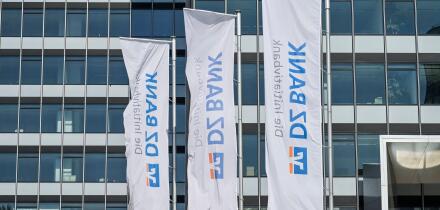Lay was treasurer of the World Bank, which performs treasury operations for IFFIm, when the Facility was first set up in 2006. He became its chair, replacing Cyrus Ardalan, in January this year.
IFFIm's first bond — a $1bn 5% November 2011 Global — was a pioneering deal. As the first social bond, though the monicker had yet to be coined back then, it was years ahead of its time. The format was significant too, with Lay having pioneered the first Global bond while at the World Bank in 1989.
IFFIm's job of providing cash to Gavi, the Vaccine Alliance, so that it can carry out work increasing access to vaccines in poor countries, backed by long-term government pledges, changed as the years went by and it took to smaller deals in a more diverse range of markets to meet its funding requirements.
But the pandemic changed all that. Last week, it returned to the dollar bond market to print a $750m five year bond, its biggest trade since its inaugural deal in 2006.
There is a lot to fund. In addition to funding the immunisation of tens of millions of children against a range of illnesses, IFFIm has joined with Gavi and the Coalition of Epidemic Preparedness Innovations (Cepi) to speed up Covid vaccine development.
It also helps Gavi fund the Covax Facility, which was intended to ensure that countries had equal, rapid access to Covid-19 vaccines.
Lay, and Heike Reichelt, head of investor relations and sustainable finance at the World Bank treasury, spoke with GlobalCapital's editor, Ralph Sinclair, about the task ahead for IFFIm, Gavi and the fight against Covid.
GlobalCapital: How has life for IFFIm changed during the pandemic, and especially since November when vaccines for Covid-19 started to receive regulatory approval?
Kenneth Lay, IFFIm: If you go back through IFFIm’s history, originally it had contemplated funding childhood vaccinations through Gavi, the vaccine alliance, with the front-loading of different countries’ pledges. The whole idea was that you could get those vaccinations out early and save lives now rather than having to wait many years. Over time, IFFIm’s funding for Gavi plateaued as Gavi and its other funding sources grew.
All of that, of course, has changed because of the pandemic. Even before Covid, the Norwegians, for example, stepped in with contributions to assist Cepi.
But it became evident that with the role that Gavi was going to be playing in providing Covid vaccines, IFFIm would be back in the bond markets. That happened in November with a $500m three year note and then most recently with the transaction just launched.
All of this is determined by what Gavi needs and what can be sustained, given the appropriate financial management that IFFIm’s World Bank treasury colleagues undertake on its behalf. But I think it's fair to say that this is a very rapidly moving situation. Virtually every week there are changes in the outlook. And of course, while it's important, IFFIm’s only one piece of the overall resource mobilisation that Gavi is doing.
We’ve seen a number of the public sector donors already stepping up with additional pledges to Gavi and to IFFIm. Again, that situation can change very rapidly but the basic model remains, I think, very robust, because it offers the capacity to take long term commitments and front-load them for the immediate needs.
GlobalCapital: So IFFIm’s funding task has grown but what else is to come?
Lay, IFFIm: With the caveat that everything is changing so rapidly, if there were not a lot of material changes in the inflow of pledges, then we're looking at a total of $1bn-$1.5bn through the end of 2022.
It's not earth shattering, but it's a significant step up from what was contemplated before the pandemic.
GlobalCapital: Do you anticipate they will be in a similar size to the most recent dollar deals or more like the smaller transactions IFFIm has done in other currencies in recent years?
Lay, IFFIm: This last transaction was $750m. Other deals will add up to the kinds of numbers I just gave you.
If you look at it historically, the funding approach IFFIm has taken has been very flexible and adaptable.
If you go back to when I was still in the World Bank years ago, IFFIm started with a large scale $1bn note. But very quickly, we were doing retail transactions in Japan. We have done several sukuk transactions and a sterling transaction in the UK domestic market. These were significantly smaller but offered excellent terms and a diversification of the investor base.
We have an active discussion underway about the most effective strategy given the growing appeal of these 'for-purpose' notes.
Cost-effectiveness is crucial because we're trying to get the best possible value for the public credit that the sponsors have deployed. So it will be important to get as broad a range of investors engaged as possible.
If all we were thinking about was the major institutional investors, we would have to have minimum ticket sizes that were large enough for them to pay attention. Then you'd be keeping these transactions at or above the scale of the recent ones.
On the other hand, it could turn out — and this is what we encountered in Japan back in the day — that retail investors are even more keen and engage with smaller ticket sizes, meaning that you can do very cost-effective transactions on a smaller scale.
GlobalCapital: There's been a huge explosion of ESG-themed issuance in recent years and an even bigger explosion in the last year as ESG-dedicated funds have grown. Has that extra demand made funding easier for IFFIm? Or has it become harder to compete against all sorts of other issuers now trumpeting their ESG credentials?
Lay, IFFIm: I don't believe that it has created any issues with respect to IFFIm's attractiveness as a socially responsible investment. If anything, it’s ensured that IFFIm continues to stand out both for the clarity of its mission and the authenticity with which it serves it.
IFFIm has been a pioneer as far as being a socially responsible investment is concerned, with its very specific, single purpose use of proceeds. It was different from some of the early green bonds, where the issuer could show that bond proceeds were being allocated for, say, climate change mitigation or adaptation, but at the same time, the issuer also engaged in a much broader set of activities.
We're in the midst of a significant market transformation. A number of the institutional investors that I work with in other contexts are beginning to assign value to environmental risks and to incorporate them into traditional portfolio theory. The same is happening with other concerns such as those introduced through pandemic risk.
It begins to bridge the gap that so long existed, when well intentioned investors were saying 'look, I'm very sorry, but I have to use traditional risk and return measures and my fiduciary obligations will not permit me to tilt toward these kinds of ESG-themed deals'.
It's changing very quickly. You will have seen this in the US with the back and forth in the Department of Labor about the fiduciary standards for pension funds. The good news is this is going in the right direction. It has the potential to cause as profound a change in fixed income as what we were dealing with — and I'm going to date myself here — back in the ‘80s and early ‘90s.
I don't believe it's going to impede IFFIm’s competitiveness. If anything, I think it broadens our investor base and will further reward the IFFIm model.
Heike Reichelt, World Bank: That that's absolutely right. There's no conversation with investors now that doesn't include the topics of ESG and sustainability. And being a social pure play issuer, IFFIm has a very, very clear mandate with the role that it's playing in providing financing for Gavi for vaccines. It's a really good story.
We prepared a net roadshow for investors to refresh their knowledge about IFFIm and to explain to them exactly how the Covax facility works and the different programs that Gavi is supporting with the funds.
Lay, IFFIm: This was all done online because of Covid. I was really impressed with the way it worked.
GlobalCapital: What sort of things do investors ask you about now that they weren't asking you about before the pandemic?
Reichelt, World Bank: There is more interest around IFFIm’s purpose. Everybody is affected by the pandemic, everybody sees the challenges that countries are going through in having access to vaccines and in deploying them. So there is genuine interest about how this works, how Gavi works, how the international community is collaborating around Covax and how IFFIm is making a difference in raising funds from investors.
Understanding the credit and the product is the starting point but there's a real — even personal — interest from the people that we're speaking to.
GlobalCapital: Have you attracted new investors and do you think that has been as a result of what's going on in the world?
Reichelt, World Bank: There are always new investors. As Ken mentioned, IFFIm is a rare issuer in the markets, and has been in different markets, depending on the size of its programme.
It was only late last year that IFFIm came back to the liquid dollar market. There were some new investors in this bond again — mostly asset managers and some corporates.
Many investors that we saw in previous deals were just happy to see that IFFIm was back in the markets again.
Lay, IFFIm: This is an issue in terms of transaction preparation and timing. If you're the World Bank, you're not worried about getting back on any investor’s radar, or in some cases its 'approved list'. There's no lead time necessary. Whereas in the IFFIm situation, where you have been an occasional issuer, then you need to have enough time to re-engage with folks. Maybe an investor’s internal authorisation protocols mean you have to go through the process again. These last couple of transactions have really begun to put IFFIm right out there again.
GlobalCapital: On the other side of the operation, has the nature of the pledges IFFIm receives changed? Do any come with conditions attached — for example, that they be spent on Covid-related activity? If so, how do you adapt your funding model to that?
Lay, IFFIm: The short answer is that some of the pledges that have come in have been designated for IFFIm support of specific Gavi activities, like Covax and Cepi. But this has made it possible for IFFIm and Gavi to sustain financing for Gavi’s core vaccination activities while responding to pandemic-related priorities as donors have intended — it hasn’t affected the IFFIm funding strategy.
GlobalCapital: Finally, IFFIm and Gavi had a ‘day job’ before Covid appeared of delivering mass vaccination programmes. How has that been affected by the pandemic?
Lay, IFFIm: The Covid pandemic has no doubt had a huge impact on Gavi’s traditional vaccination activities. It has really made it difficult, so they've been putting a huge amount of effort and urgency into trying to figure out how to get the vaccine rollout done equitably across developing countries because it's having knock-on impacts on its traditional work. It's a huge priority for them and it's very tough.
Just take the numbers that one of my colleagues there had passed along: Just under a year ago, they were saying, there were going to be 80m kids that were not going to get routine immunisations as a result of this pandemic. That's a huge number.
The good news is they that through their partners in the Alliance, they've got the boots on the ground and a powerful effort is underway to try to take care of this.







